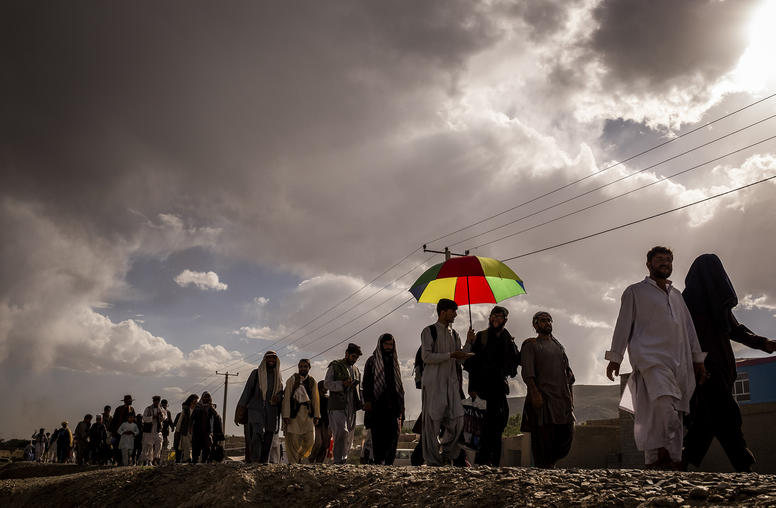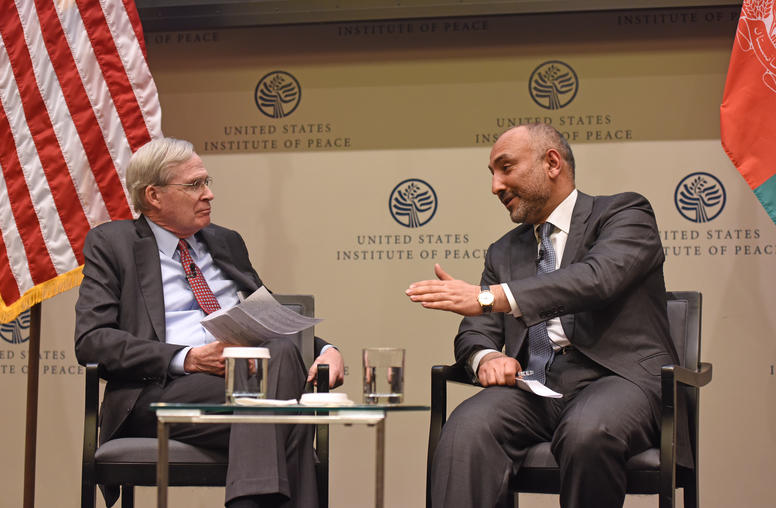Publications
Articles, publications, books, tools and multimedia features from the U.S. Institute of Peace provide the latest news, analysis, research findings, practitioner guides and reports, all related to the conflict zones and issues that are at the center of the Institute’s work to prevent and reduce violent conflict.

A Primer on Multi-track Diplomacy: How Does it Work?
If you asked someone to define diplomacy, chances are they would describe two governments meeting, shaking hands, sitting at a table, and negotiating an official agreement. But that more traditional view of diplomacy is only one iteration, often called track 1 diplomacy. Diplomacy can occur in a number of forms, or “tracks,” that engage various participants, from academics to policymakers to heads of state. In an increasingly complex global environment, peacebuilders and diplomats looking to address difficult policy challenges are increasingly incorporating track 1.5 and track 2 dialogues—often referred to as “back channel” diplomacy—into their strategies.

Amid a Spike in Violence, Have Afghan Peace Talks Lost Momentum?
After rapid progress in early 2019, the Afghan peace process has seemingly slowed. The U.S. chief negotiator, Ambassador Zalmay Khalilzad, said in May that his negotiations with the Taliban were making slow but steady progress, but there has been little headway in starting talks among the various Afghan parties. Meanwhile, violence has ratcheted up, as typically occurs in the spring and summer in Afghanistan. The country’s overdue presidential polls are scheduled for late September, further complicating efforts to achieve peace. Can talks succeed amid the violence and political discord? Will the elections drain momentum from the peace process? USIP’s Johnny Walsh looks at the Afghan peace process ahead of the next round of talks in late June.

The State of Play in U.S.-Taliban Talks and the Afghan Peace Process
The latest round of U.S.-Taliban talks concluded on March 12, with both sides noting progress but conceding that no breakthroughs had been made. After two weeks of discussions in Doha, Qatar, American officials said they were close to reaching a final agreement on a potential U.S. troop withdrawal and a Taliban pledge to no longer allow terrorist attacks from Afghanistan. But how far can these talks go without the Afghan government involved? Is Afghanistan’s post-2001 progress in jeopardy? And what do regional actors think about the talks? USIP’s Johnny Walsh examines the state of play in the Afghan peace process.

Johnny Walsh on Election Season in Afghanistan
As Afghans wait for official results from the parliamentary polls, Johnny Walsh says that the country is already entering “high political season” in preparation for the critical April 2019 presidential election. Although the Taliban continues to carry out high-profile attacks across the country, Walsh says that many Afghans are focused on the presidential polls and its implications for the peace process.

Johnny Walsh on Peace in Afghanistan
Despite the Taliban’s failure to accept the Kabul government’s offer of another cease-fire this week, Johnny Walsh says that a political solution to the Afghanistan war is the best alternative to the current military stalemate. Even absent a cease-fire, hope remains that the peace process can move forward in 2018.

Are the U.S. and the Taliban Finally Ready for Direct Talks?
Following a series of positive developments in recent months, could the Trump administration’s decision to pursue direct talks with the Taliban revive the moribund peace process? U.S. Institute of Peace Senior Expert Johnny Walsh discusses the significance of this move and what we can expect from any potential negotiations.

Seize This Moment for Afghan Peace Talks
Even though fighting continues, nearly all serious observers believe a political settlement in Afghanistan is the only plausible alternative to open-ended war. So, while Taliban leaders over the last month have announced their annual spring offensive and disputed Kabul and Washington’s sincerity about making peace, they concurrently show signs of flexibility in how they envision a potential peace deal.

ISIS Seeks to Threaten Afghan Democracy with Latest Assault
With last week’s attack aimed at discrediting the electoral process and dissuading Afghans from participating, the Islamic State has made clear that it intends to suppress Afghanistan’s democratic development. Afghanistan’s burgeoning independent media is one of the country’s major success stories and most-trusted institutions.

Making Peace Among Afghans: Kabul's View
Afghanistan’s government is focused on building consensus—both domestically and among states in the region—to support a peace process with the Taliban insurgency, according to the Afghan national security advisor, Hanif Atmar. The main challenges, he said, include continued support from Pakistan for the Taliban and an incremental recent Russian move toward immediate cooperation with the Taliban even without a peace process.

Johnny Walsh on U.S. Strategy in Afghanistan
Secretary of Defense Mattis’s visit to Kabul, Afghanistan, follows a spike in activity from all parties proffering peace talks. Johnny Walsh shares his thoughts about the U.S. strategy to bolster the Afghan government’s position to enter into peace talks with the Taliban.